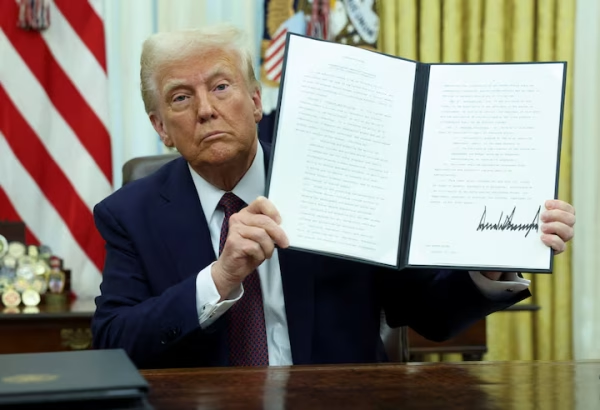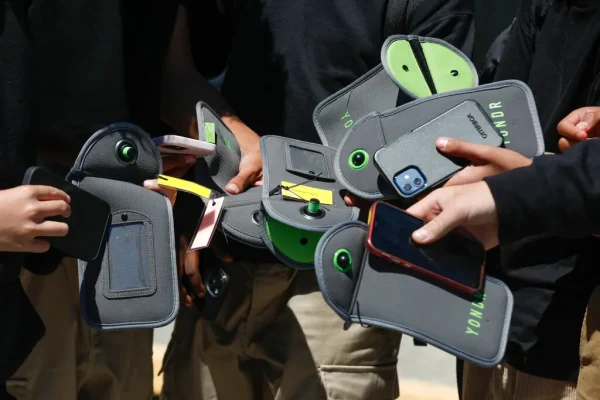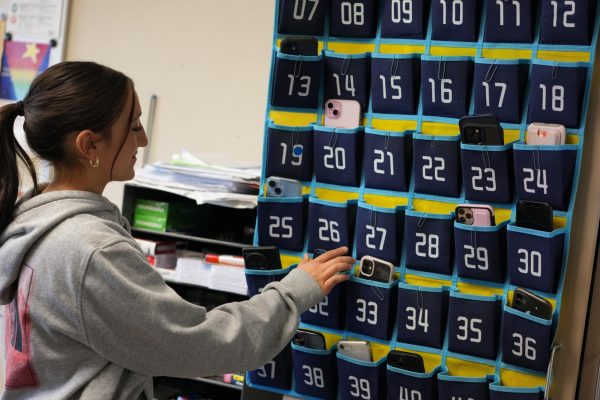Don’t expect a winner on election night
Mail-in ballot counting could delay outcome for weeks
This story can also be viewed in our November 2020 Features Issue under the Print section of our website.
Election day is Nov. 3, which means that’s when Americans will know who becomes the next president of the United States, right? Not necessarily.
This year, many ballots are being submitted by mail because of the coronavirus pandemic, which is one of the biggest factors in what is expected to be a delay in results. California is among eight states, plus Washington, D.C., that mailed ballots to all registered voters. As of Oct. 26, more than 88 million mail-in ballots have been requested nationwide and 50 percent of those ballots have already been returned, according to a story published by NPR.
That leaves roughly 44 million ballots that still need to come in within the next week.
All ballots will have to be counted by hand, and signatures verified before these votes are made official. Staffing will also be limited due to COVID-19, making ballot counting even slower in this indefinite delay, according to an article in the Wall Street Journal.
The sudden increase in voting by mail, which is one of the many options, affects all voters.
The sudden spike in votes by mail is definitely creating some controversy with the election, as well as some distrust within the population.
“This negative rhetoric creates uncertainty and distrust,” United States Government teacher Tasneem Khan said. “People should have the option to vote safely and according to their level of comfort.”
If election results are delayed as expected, this will not be the first time.
In the 2000 election between Republican George W. Bush and then-Vice President Al Gore, a recount was demanded by Gore because the results in Florida were within 2,000 votes.
The decision went all the way to the Supreme Court, which reversed a Florida Supreme Court request for a selective manual recount of the state’s ballots. The 5-4 decision came on Dec. 12, more than a month after the election, and ultimately awarded Florida’s 25 electoral votes and the presidency to Bush.
Gore had won the popular vote but lost the electoral college, helping make this case one of the renowned Supreme Court decisions of all time.
“Today it’s very different because we have a president who is regularly telling us that the election is rigged and the results shouldn’t be accepted,” Khan said. “Most of the controversy is regarding mail- in ballots.”
Voting will take longer in states with larger populations such as California and Texas, as well as states that are less accustomed to this process.
According to the Wall Street Journal, a week and half was needed before a winner of an Orange County house race was decided in 2018. This is one of many instances in which results were not known the night of the election.
Not only will the delay of the results leave many in anticipation, it may also cause some people to question the results. President Trump has made many accusations of bias in the past, and it’s likely he will again.
Trump has claimed that mail-in voting will lead to fraud and biased results favoring Democratic challenger Joe Biden, according to BBC News. Since mail-in ballots are being accepted as late as election night, and in some states a few days after, votes will not have finished coming in until later in the week.
President Trump expressed his concern about this, saying, “The problem with mail in voting, number one, is you’re never going to know when the election is over,” according to the BBC News article.
He has also previously said that a winner needs to be declared on election night because that’s always how it’s been done. If votes are still coming in, no winner can be declared on election night because results will be highly inaccurate if votes can come in for up to many days afterwards.
Freshman Sam Eastman is unsure of the validity of results.
“This election is causing a lot of controversy within America,” Eastman said. “There might be some intentional or unintentional mistakes in the counting of the ballots, since ballot-counters have opinions and bias of their own. We’ll never really know for sure whether someone has tampered with the votes.”
It is likely that the sudden flood of votes as well as short staffing will lead to delayed results for a much anticipated election. The exact date that results will be found out is unknown, and Americans might be waiting for a few days or possibly a few weeks.
There’s also a chance there are voting irregularities that tie up results in certain precincts, counties or states, which prevent a clear winner from being projected. There could be legal battles that last weeks, Congress or the Supreme Court may have to intervene, and it’s not known who the next president will be for weeks, according to an ABC7News article.
But no matter what happens, states hope to have results sorted by Dec. 14, when the Electoral College convenes and electors from each state cast their votes. Congress tallies those Electoral College votes on Jan. 6 and makes the decision official.

Jett Gold is a sophomore at Cal High, and is in his second year of reporting for the Californian. Jett enjoys playing sports, and does wrestling and track...





